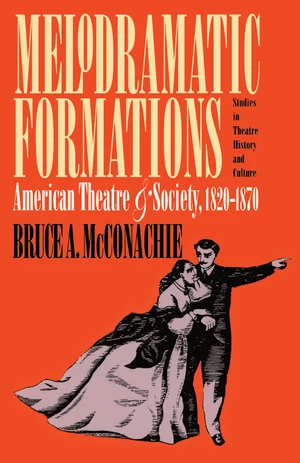The middle years of the nineteenth century were a time of dynamic artistic and social changes in America. Now, Melodramatic Formations is the first study to trace these changes in popular stage melodrama's production, dramatic form, and audience reception. Bruce McConachie shows how the theatrical mutability that characterized the years 1820 to 1870 is inextricably tied to the decline of elite paternalism and republicanism and the rise of bourgeois rationalism and respectability. Taking a rigorous interdisciplinary approach, McConachie examines several historical regularities of production, genre, and audience. Here theatre (and its drama) has at long last been returned to its general culture, rather than being treated as an isolated phenomenon. Ultimately, he develops a new notion of a theatrical formationâa construct where groups of spectators and theatre performers produce each other as artists-to-be-experienced and audiences-to-be-entertained. Throughout Melodramatic Formations McConachie illustrates how theatre both maintains and produces various ideologies; he convincingly shows that theatre is a major player in our social and cultural history. This book will be of interest to all in American studies, theatre history, and American cultural history.
Price history
Sep 25, 2022
€37.75

